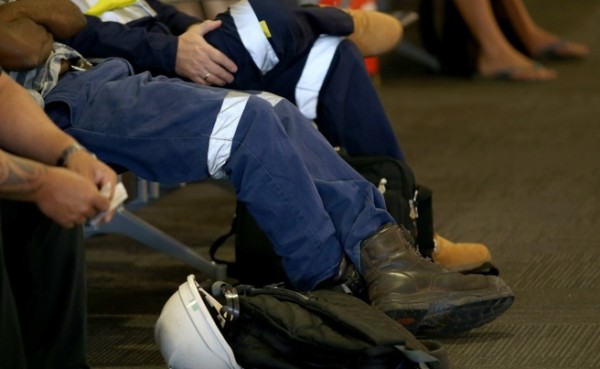
Fly-in, fly-out workers are falling between the cracks of a system that often fails to help them cope with their increased vulnerability to mental health problems.
A Parliamentary Lower House inquiry into the mental health effects of the so-called FIFO industry this morning handed down its long-awaited report, finding a litany of shortcomings in how the system protected workers.
Chaired by Liberal Eyre MP Graham Jacobs, the committee said about 60,000 workers were directly employed under FIFO arrangements, while about 240,000 people across the state were indirectly affected by it.
The committee said that despite the prevalence of FIFO there was a clear lack of data about how many people were employed through such arrangements at any one time.
It also said there was a paucity of official detail about how many FIFO workers were suffering mental health issues, had tried to commit suicide or taken their own life.
This was despite the fact that most of the workers employed under through FIFO arrangements fell within the demographic category most vulnerable to mental health disorders – males aged between 15 and 44.
“The committee found three recent, reliable studies which suggest that the prevalence rate of mental health problems amongst the FIFO workforce could be approximately 30 per cent, significantly higher than the national average of 20 per cent,” the committee’s report said.
Launched after reports nine FIFO workers had taken their own life during a 12-month period, the inquiry found one of the biggest problems facing workers, their families or employers was a complicated and “confusing” regulatory regime.
According to the committee, there were several State and Federal agencies which had oversight of issues on FIFO sites and this made it unacceptably hard for individuals to seek answers to questions or get help.
It recommended streamlining responsibility for the mental well-being of FIFO workers and including occupational safety and health provisions to workers’ accommodation amid a belief off-shift employees were not adequately covered.
Controversially, the committee recommended a shake-up of roster arrangements to ensure they were more supportive of workers’ mental health, while advocating tougher efforts to stamp out bullying and reduce the effects of fatigue.
There should also be better communications facilities at sites to help workers stay in touch with their families and friends and get help if they needed it.
“Arguments have been made that some individuals are more suited to FIFO work arrangements than others,” the report said.
“The committee does not accept this suitability argument.
“If this argument is accepted as valid, it suggests that the solution to the ‘challenges’ posed by FIFO work practices is to screen for and recruit only those deemed suitable to handle those challenges.
“This logic is akin to saying that the solution to the challenge of working safely at heights is to employ only those with exceptional balance, rather than addressing safety risks by providing harnesses and safety railings.
“Industry’s emphasis should be on tailoring FIFO roles to accommodate the mental health needs of workers.”
Source: The West Australian